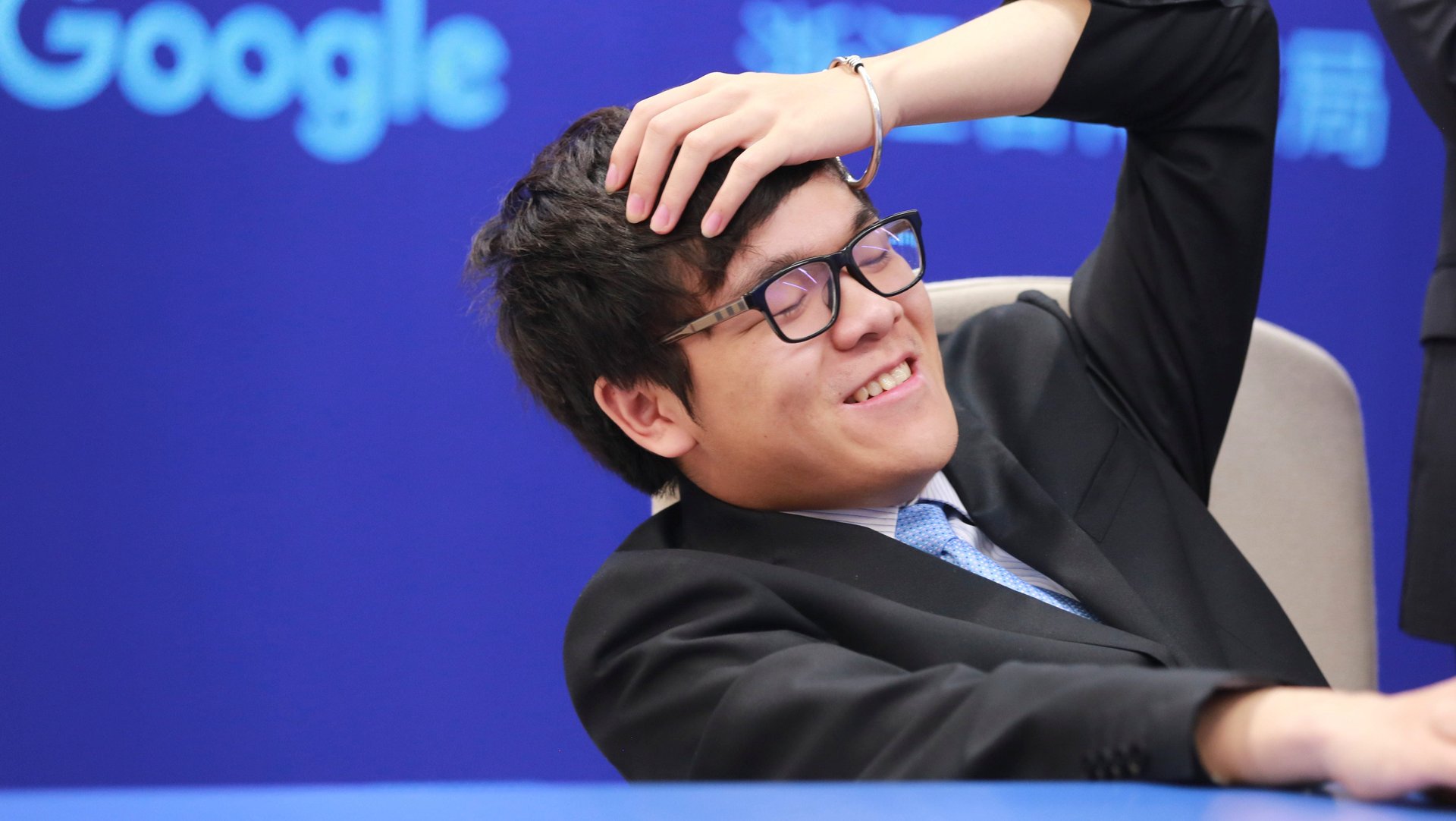China got a wake-up call on AI when a Western machine beat the best Asian players at Go
China intends to become the world’s artificial intelligence leader in 2030, according to the manifesto it just released describing plans to create an industry of $150 billion and an environment that has AI “everywhere.” According to The New York Times (paywall), these ambitions are propelled in no small part by a machine’s dominance over Asian champions in the ancient strategy game called Go.


China intends to become the world’s artificial intelligence leader in 2030, according to the manifesto it just released describing plans to create an industry of $150 billion and an environment that has AI “everywhere.” According to The New York Times (paywall), these ambitions are propelled in no small part by a machine’s dominance over Asian champions in the ancient strategy game called Go.
Since last year, AlphaGo, developed by the Google-owned artificial-intelligence firm DeepMind, has consistently beaten the world’s top players, from China and South Korea, in a game said to be trickier than chess. The machine’s superiority over humans—a development that as recently as 2014 was not expected to arrive for another decade, marked a major milestone in AI development. At the closely watched recent man-against-machine tournament in China in May, Ke Jie, the world’s best human player at the time, wrote a letter saying “the future belongs to AI” before he sat down to play. Then he lost in back-to-back games to AlphaGo.
The Times spoke to two professors, not named, who had advised China on AI, and who said that these Go defeats played a role in the ambitions China’s State Council, the country’s cabinet, displayed in the document (link in Chinese) it released on on Thursday (July 20). The plan covers almost every field: from using the technology to for voice recognition to dispatching robots for deep-sea and Arctic exploration, as well as using AI in military security. The Council said the country must “firmly grasp this new stage of AI development.”
China said it plans to build “special-force” AI robots for ocean and Arctic exploration, use the technology for gathering evidence and reading court documents, and also use machines for “emotional interaction functions.”
China has announced other efforts to accelerate AI development in recent months. In February, China’s National Development and Reform Commission, the country’s top economic policy planner, said it would fund search giant Baidu’s development of an AI-backed national deep-learning research lab. That’s clearly modeled on DeepMind. The country’s dominant player in social media, Tencent, has also been pouring resources into the technology, and set up a research lab on AI in Seattle, in the US, in May.
There are ways in which China is well-placed for innovations in AI. Advancements in machine learning depend on access to lots of data and China—thanks to its large digitally-connected population—has that. Tencent’s social messaging app WeChat, for example, counts on nearly 900 million users. There have been a few setbacks in recent months, though, as Chinese tech firms have seen the departure of tech stars, including online learning company Coursera co-founder AI wizarrd Andrew Ng from Baidu in March.
A recent test-taking robot also offered some clues to how far China has to go. The robot sat with millions of Chinese students to take the math component of the infamous gaokao test, which determines which colleges students can get into. With its score, the robot wouldn’t have managed to get into a top university, unlike the best of the human test takers.